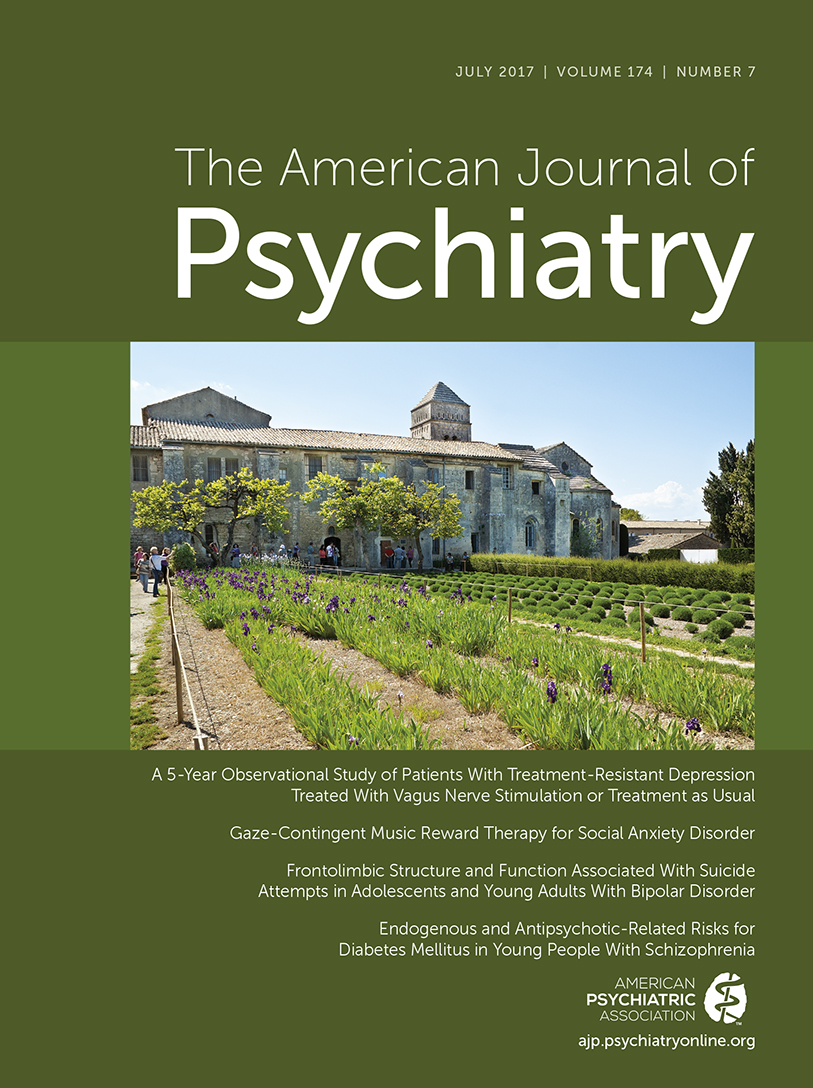Gaze-Contingent Music Reward Therapy for Social Anxiety Disorder: A Randomized Controlled Trial
Abstract
Objective:
Patients with social anxiety disorder exhibit increased attentional dwelling on social threats, providing a viable target for therapeutics. This randomized controlled trial examined the efficacy of a novel gaze-contingent music reward therapy for social anxiety disorder designed to reduce attention dwelling on threats.
Method:
Forty patients with social anxiety disorder were randomly assigned to eight sessions of either gaze-contingent music reward therapy, designed to divert patients’ gaze toward neutral stimuli rather than threat stimuli, or to a control condition. Clinician and self-report measures of social anxiety were acquired pretreatment, posttreatment, and at 3-month follow-up. Dwell time on socially threatening faces was assessed during the training sessions and at pre- and posttreatment.
Results:
Gaze-contingent music reward therapy yielded greater reductions of symptoms of social anxiety disorder than the control condition on both clinician-rated and self-reported measures. Therapeutic effects were maintained at follow-up. Gaze-contingent music reward therapy, but not the control condition, also reduced dwell time on threat, which partially mediated clinical effects. Finally, gaze-contingent music reward therapy, but not the control condition, also altered dwell time on socially threatening faces not used in training, reflecting near-transfer training generalization.
Conclusions:
This is the first randomized controlled trial to examine a gaze-contingent intervention in social anxiety disorder. The results demonstrate target engagement and clinical effects. This study sets the stage for larger randomized controlled trials and testing in other emotional disorders.



